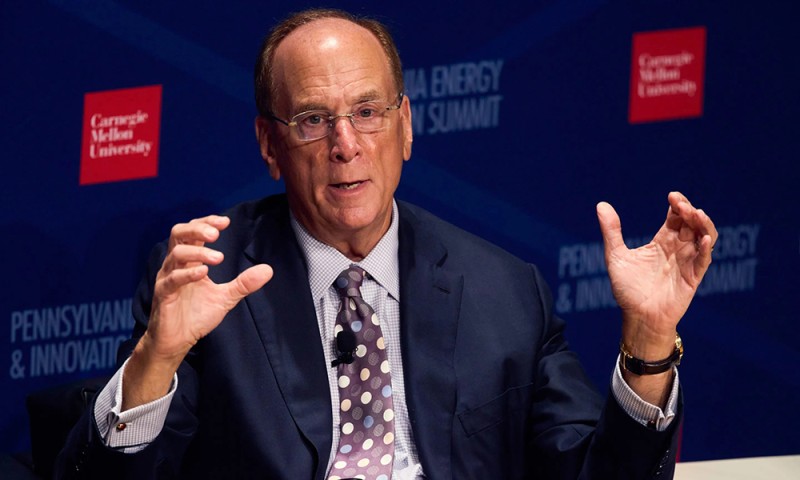
近日有消息称,由贝莱德牵头的投资集团已同意以400亿美元收购Aligned数据中心。这一交易不仅凸显了资金涌入人工智能数据中心势不可挡,与此同时,贝莱德首席执行官拉里·芬克也公开驳斥了市场对人工智能泡沫的担忧。
此次收购的标的Aligned数据中心,其所有权归属麦格理资产管理公司(Macquarie Asset Management),而该交易由AI Infrastructure Partnership签署。该联盟成立于2024年9月,成员包括贝莱德及其基础设施部门、全球基础设施合作伙伴(Global Infrastructure Partners)、微软(Microsoft)、英伟达(Nvidia)及由阿布扎比主权财富基金穆巴达拉(Mubadala)支持的人工智能投资公司MGX。科威特投资局(Kuwait Investment Authority)、xAI和淡马锡(Temasek)作为新增成员加入。
该联盟旨在向人工智能、数据中心及能源领域投入高达300亿美元股权资本,此次交易是其首笔投资,亦成为贝莱德迄今规模最大的基础设施投资之一。若交易完成,这将成为史上最大规模的数据中心交易之一,无论最终结果如何,都彰显了华尔街争相在人工智能热潮中抢占一席之地。
芬克对“人工智能基础设施投资正形成危险泡沫”的观点予以驳斥,他认为,若美国意图维持其全球领导地位,大规模数据中心建设不可或缺。昨日,他在美国消费者新闻与商业频道(CNBC)《Squawk Box》节目中表示:"投资领域确实存在泡沫。但我们能说泡沫就一定是坏事吗?当前资本投入确实呈爆炸式增长态势。然而,若从地缘政治格局的角度来看,我国若想成为人工智能技术领导者,就必须进行这些投资。”
总部位于得克萨斯州普莱诺市的Aligned数据中心成立于2013年,致力于为超大规模企业和云计算公司建设并运维数据中心。其数据中心遍布美国——包括北弗吉尼亚州、芝加哥、达拉斯、俄亥俄州、凤凰城和盐湖城,此外在墨西哥、巴西和智利也设有数据中心。
此次交易正值科技巨头抢占稀缺土地、电力及算力资源——这些都是支撑人工智能领域竞争的基础性资源。例如,在过去的几周里,OpenAI已宣布与博通(Broadcom)、英伟达、AMD达成数十亿美元协议,以锁定公司所需算力资源。
“要推动这场革命,就必须建设基础设施,在这方面我们不能落后。”上个月,OpenAI 首席执行官萨姆·奥尔特曼(Altman)在得克萨斯州阿比林市的“星际之门”(Stargate)数据中心媒体活动上对记者表示。该数据中心是OpenAI与甲骨文(Oracle)合作的旗舰项目,占地面积达800英亩(约合3.2平方千米)。活动期间,奥尔特曼还宣布,双方将在未来数年内在美国境内新建5个大型数据中心园区。
OpenAI并非个例:在过去两个月里,微软已与英国数据中心开发商Nscale达成多项数十亿美元协议,其中包括今日宣布的得克萨斯州新数据中心项目选址,该中心容量最高可达240兆瓦。同样在今日,Meta宣布将斥资15亿美元在得克萨斯州埃尔帕索建设人工智能数据中心,其容量最终或达1吉瓦,有望成为美国规划中规模最大的数据中心园区之一。
相关数据令人瞠目:英伟达首席执行官黄仁勋(Jensen Huang)在近期的财报电话会议中预测,到本十年末,全球人工智能基础设施投资将达3万亿至4万亿美元。麦肯锡则(McKinsey)指出,受人工智能驱动,美国数据中心需求到2030年可能增加两倍,要满足这一需求,需投入近7万亿美元。(*)
译者:中慧言-王芳
近日有消息称,由贝莱德牵头的投资集团已同意以400亿美元收购Aligned数据中心。这一交易不仅凸显了资金涌入人工智能数据中心势不可挡,与此同时,贝莱德首席执行官拉里·芬克也公开驳斥了市场对人工智能泡沫的担忧。
此次收购的标的Aligned数据中心,其所有权归属麦格理资产管理公司(Macquarie Asset Management),而该交易由AI Infrastructure Partnership签署。该联盟成立于2024年9月,成员包括贝莱德及其基础设施部门、全球基础设施合作伙伴(Global Infrastructure Partners)、微软(Microsoft)、英伟达(Nvidia)及由阿布扎比主权财富基金穆巴达拉(Mubadala)支持的人工智能投资公司MGX。科威特投资局(Kuwait Investment Authority)、xAI和淡马锡(Temasek)作为新增成员加入。
该联盟旨在向人工智能、数据中心及能源领域投入高达300亿美元股权资本,此次交易是其首笔投资,亦成为贝莱德迄今规模最大的基础设施投资之一。若交易完成,这将成为史上最大规模的数据中心交易之一,无论最终结果如何,都彰显了华尔街争相在人工智能热潮中抢占一席之地。
芬克对“人工智能基础设施投资正形成危险泡沫”的观点予以驳斥,他认为,若美国意图维持其全球领导地位,大规模数据中心建设不可或缺。昨日,他在美国消费者新闻与商业频道(CNBC)《Squawk Box》节目中表示:"投资领域确实存在泡沫。但我们能说泡沫就一定是坏事吗?当前资本投入确实呈爆炸式增长态势。然而,若从地缘政治格局的角度来看,我国若想成为人工智能技术领导者,就必须进行这些投资。”
总部位于得克萨斯州普莱诺市的Aligned数据中心成立于2013年,致力于为超大规模企业和云计算公司建设并运维数据中心。其数据中心遍布美国——包括北弗吉尼亚州、芝加哥、达拉斯、俄亥俄州、凤凰城和盐湖城,此外在墨西哥、巴西和智利也设有数据中心。
此次交易正值科技巨头抢占稀缺土地、电力及算力资源——这些都是支撑人工智能领域竞争的基础性资源。例如,在过去的几周里,OpenAI已宣布与博通(Broadcom)、英伟达、AMD达成数十亿美元协议,以锁定公司所需算力资源。
“要推动这场革命,就必须建设基础设施,在这方面我们不能落后。”上个月,OpenAI 首席执行官萨姆·奥尔特曼(Altman)在得克萨斯州阿比林市的“星际之门”(Stargate)数据中心媒体活动上对记者表示。该数据中心是OpenAI与甲骨文(Oracle)合作的旗舰项目,占地面积达800英亩(约合3.2平方千米)。活动期间,奥尔特曼还宣布,双方将在未来数年内在美国境内新建5个大型数据中心园区。
OpenAI并非个例:在过去两个月里,微软已与英国数据中心开发商Nscale达成多项数十亿美元协议,其中包括今日宣布的得克萨斯州新数据中心项目选址,该中心容量最高可达240兆瓦。同样在今日,Meta宣布将斥资15亿美元在得克萨斯州埃尔帕索建设人工智能数据中心,其容量最终或达1吉瓦,有望成为美国规划中规模最大的数据中心园区之一。
相关数据令人瞠目:英伟达首席执行官黄仁勋(Jensen Huang)在近期的财报电话会议中预测,到本十年末,全球人工智能基础设施投资将达3万亿至4万亿美元。麦肯锡则(McKinsey)指出,受人工智能驱动,美国数据中心需求到2030年可能增加两倍,要满足这一需求,需投入近7万亿美元。(*)
译者:中慧言-王芳
Today’s announcement that a group of investors led by BlackRock has agreed to buy Aligned Data Centers in a $40 billion deal underscores the seemingly unstoppable flow of money into AI data centers—and comes as its CEO, Larry Fink, pushes back on AI bubble fears.
The deal to buy Aligned, which is owned by Macquarie Asset Management, is being inked by the AI Infrastructure Partnership (AIP)—a coalition formed in September 2024 by BlackRock, its infrastructure arm, Global Infrastructure Partners, as well as Microsoft, Nvidia, and MGX, an AI investment firm backed by Abu Dhabi sovereign wealth fund Mubadala. The Kuwait Investment Authority, xAI, and Temasek joined as additional participants.
The AIP was formed to invest up to $30 billion of equity capital in AI, data centers, and energy; this is its first deal, which ranks as one of BlackRock’s largest infrastructure investments to date. If completed, it would be among the largest data center transactions on record, and regardless it underscores how Wall Street is racing to claim a stake in the AI boom.
Fink has rejected the idea that AI infrastructure spending represents a dangerous bubble, arguing that massive data center build-outs are essential if the U.S. is to remain the global leader. “Well, there’s a bubble in investing,” he said on CNBC Squawk Box yesterday. “But are we inferring a bubble means a bad thing? There is certainly a skyrocketing amount of capital being put to work. If you put it in a framework of geopolitical positioning, we as a country need these investments if we’re going to be the leader in AI technology.”
Aligned Data Centers, which is based in Plano, Texas, was founded in 2013 to build and operate data centers for hyperscalers and cloud-computing companies. It has data centers across the U.S.—including in Northern Virginia, Chicago, Dallas, Ohio, Phoenix, and Salt Lake City—as well as in Mexico, Brazil, and Chile.
The timing of the deal comes as Big Tech firms race to secure scarce land, power, and compute capacity—the foundational resources underpinning the AI race. For example, over the past few weeks, OpenAI has announced multibillion-dollar deals with Broadcom, Nvidia, and AMD in order to lock in the computing power the company needs.
“We cannot fall behind in the need to put the infrastructure together to make this revolution happen,” Altman told reporters during a media event at OpenAI and Oracle’s flagship 800-acre Stargate data center location in Abilene, Texas, last month, where he also announced the companies will build five massive new data center complexes across the U.S. over the next several years.
OpenAI is far from alone: Microsoft has made several multibillion-dollar deals in the past two months with U.K.-based data center developer Nscale, including the announcement today of a new site in Texas that will have capacity of as much as 240 megawatts of power. Also today, Meta announced it would invest $1.5 billion in an AI data center in El Paso, Texas, that could scale to 1 gigawatt, making it one of the largest planned data center campuses in the U.S.
The total numbers are staggering: On a recent earnings call, Nvidia CEO Jensen Huang estimated that between $3 trillion and $4 trillion will be spent on AI infrastructure by the end of the decade. And McKinsey said U.S. data center demand, driven largely by AI, could triple by 2030, and require data centers to make nearly $7 trillion in investments to keep up.

